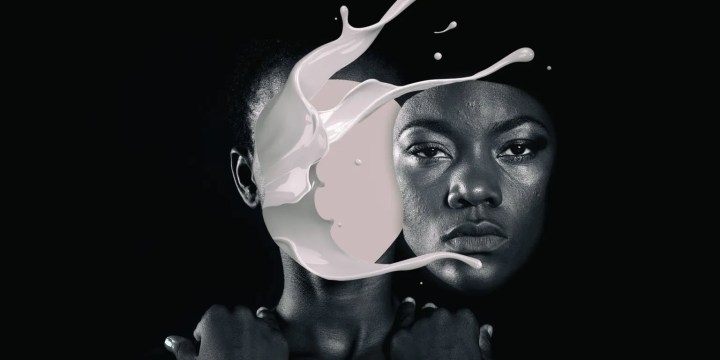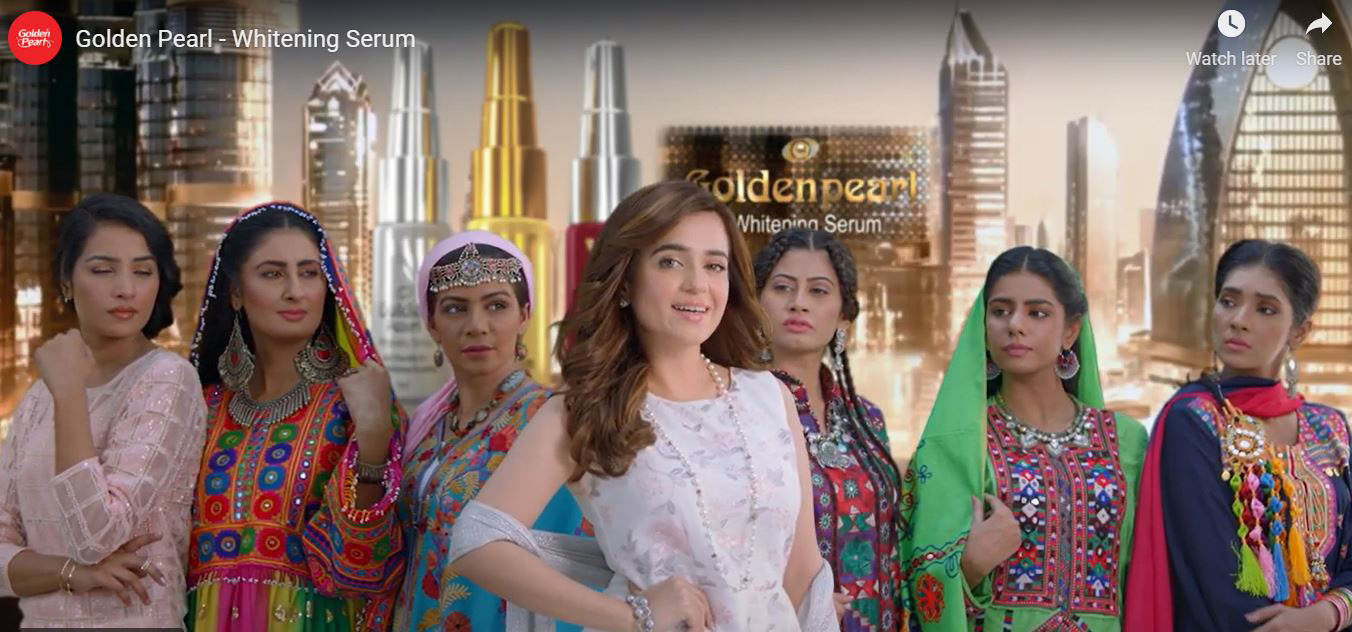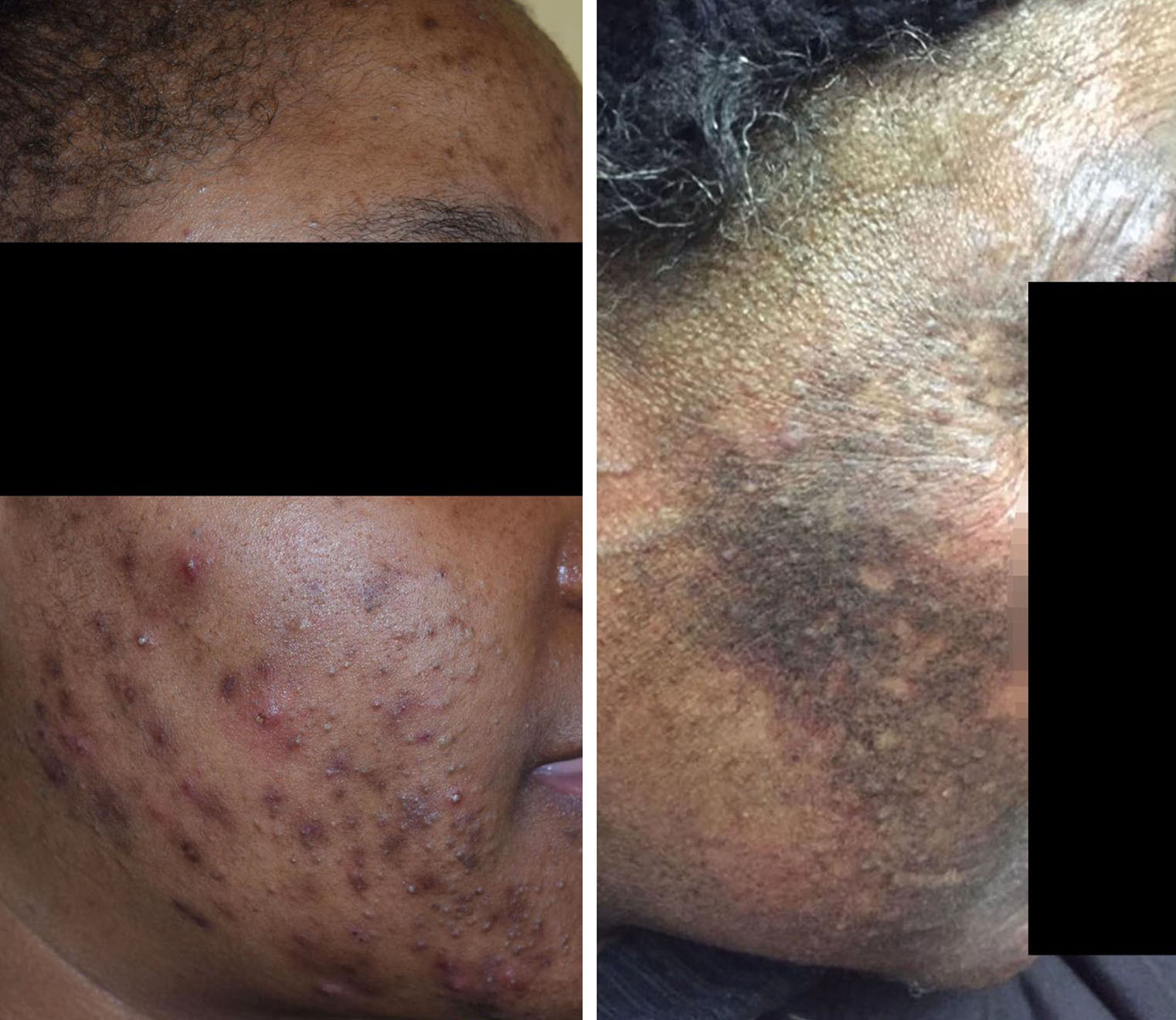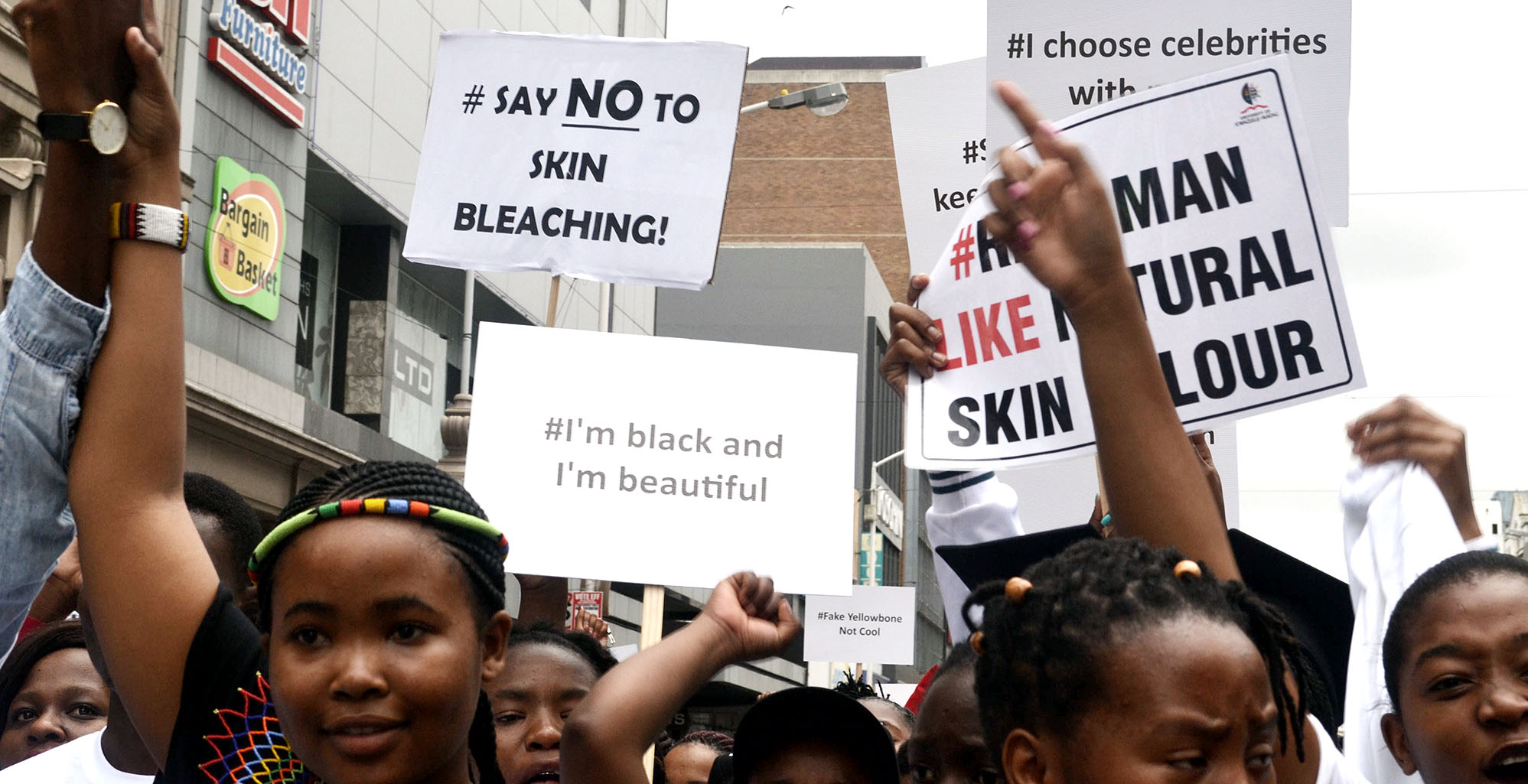BEYOND THE PALE
New global push to protect women from health hazards of ‘whiter skin’ creams

Several African governments will submit proposals calling for more concerted global action to protect women – and a growing number of men – from suffering permanent skin damage and more severe health dangers from exposure to poisonous skin creams.
Toxic skin-lightening creams have been banned in South Africa and many other nations for decades. Yet millions of women around the world are still exposed to the harmful side effects of this lucrative “beauty products” trade.
This week, at a meeting in Switzerland, several African governments will submit proposals calling for more concerted global action to protect women – and a growing number of men – from suffering permanent skin damage and more severe health dangers from exposure to poisonous skin creams.

A corporate cosmetic advert promoting ‘fairer’ skin. (Photo: Golden Pearl website)
The common risk factor comes from mercury, a toxic heavy metal that is added to many of the cheaper varieties of skin-lightening creams.
When applied to the skin, mercury suppresses the production of melanin pigments that produce darker skin tones and can also help to remove age spots, freckles, blemishes and wrinkles.
Though mercury can be an effective short-term inhibitor of melanin production and produce a “fairer” skin tone, long-term exposure can also lead to splotchy skin, rashes, skin discolouration and scarring, and reduce the skin’s resistance to bacterial and fungal infections.
Read more in Daily Maverick: Beyond the pale: The noxious history of skin-lightening creams in South Africa still haunts us
Over and above skin damage, exposure to mercury-containing skin creams can also induce severe health impacts that range from kidney damage to neurological effects such as anxiety, depression, psychosis and peripheral neuropathy.
These are some of the reasons why several member states of the Minamata Convention on Mercury are pressing for stricter controls at a global level to curb the illegal trade in toxic skin-lightening creams
The Minamata Convention is a global treaty that came into effect in 2017, aiming to phase out or eliminate the use of mercury and mercury compounds in products such as batteries, compact fluorescent lamps, thermometers and cosmetics or dental fillings.
Health hazard: Women scarred for life by poisonous chemicals in skin-lightening creams
The convention is named after the Japanese city of Minamata where thousands of people were poisoned by eating fish and shellfish contaminated by mercury effluent dumped by a chemical company called the Chisso Corporation.
In extreme cases, Minamata disease led to insanity, paralysis or death, while many children born to mercury-exposed mothers developed brain and muscle damage symptoms similar to cerebral palsy.
As part of the recent global measures to reduce human exposure to mercury, 130 member states of the convention agreed to a global ban on the manufacture and trade of cosmetic products containing more than one part per million (ppm) of mercury from January 2021.
Despite this global ban (and South Africa’s 1990 domestic ban on skin-lightening creams) numerous products with very high levels of mercury and other dangerous substances are still sold openly across the world – not just in shops or from informal vendors, but also over the internet through e-trading platforms such as Facebook, eBay, Takealot and Gumtree.

Six samples of skin-lightening creams bought in Durban in December 2021 all contained mercury levels way above the legal limit. (Photo: Tony Carnie)
Just 18 months ago, for example, Daily Maverick purchased six cheap skin-lightening creams from a cosmetic outlet and spice shops in Durban and had them analysed by the Council for Scientific and Industrial Research. Every cream contained high levels of mercury, with one sample containing 29,000 times more than the global limit agreed to under the Minamata treaty.
Read more in Daily Maverick: Skin-lightening whitewash: Global and domestic bans of cosmetics containing mercury prove to be skin-deep
Non-government bodies such as the Zero Mercury Working Group (ZMWG) and the European Environmental Bureau have commissioned similar tests across the world, revealing a globally pervasive pattern of high mercury levels in many skin-lightening creams
Earlier this month, ZMWG released a report showing that 90% of these products purchased online in 12 countries exceeded the Minamata limit of 1 ppm.
As a result of the continued sale and marketing of these toxic creams, a new proposal for tougher controls will be submitted this week (30 October-3 November) at the treaty’s fifth Conference of the Parties (COP-5) in Geneva.

Skin-lightening creams can cause irreversible damage to the skin such as ochronosis or lesions. (Photo: Supplied)
Submitted by Botswana and Burkina Faso on behalf of the Africa region, the proposed amendments call for a total prohibition on the manufacture and trade of all “mercury-added cosmetics” (instead of only those containing over 1 ppm mercury).
It also calls for new measures to curtail the merchandising of mercury-added skin-lightening products (including the selling, marketing, advertising or display of such products).
According to the Africa region proposal, it is essential to curb internet sales which often allow producer companies to “hide in the shadows”.
“Without national collaboration and a globally coordinated effort, on both the supply and demand side, skin-lightening products’ trade and sales will persist into the foreseeable future long after all other banned (mercury) products are eventually eliminated.”
Rico Euripidou, from the Pietermartizburg-based groundWork environmental watchdog group, has also emphasised the need to coordinate international collaboration to halt the trade.
He notes that the current 1 ppm threshold for mercury is not a health-based standard. Rather, it was put in place for the convenience of addressing tiny trace amounts of mercury. But according to the World Health Organization, there is no “safe” level of mercury.

Women stage an awareness protest in Durban against skin-lightening creams. (Photo: Nombuso Dlamini)
“Many governments have already adopted a no-threshold limit, including the EU, Kenya, Nigeria, South Africa, Rwanda, Ghana, Côte d’Ivoire, Sri Lanka, Thailand, United Arab Republic and others, including several US states,” said Euripidou.
“Having a zero-tolerance would preclude the need for costly laboratory analysis and would place the burden of proof on marketers instead of governments.”
Adoption of a zero mercury threshold in skin creams would also enable governments to conduct more effective market surveillance using simple and relatively cheap hand-held testing devices known as X-ray fluorescence (XRF) analysers.
Leaving aside the well-documented health dangers, the Africa region also notes that skin-lightening creams are a symbol of “colourism”.
Nevertheless, the World Health Organization suggests that the skin-lightening industry is one of the fastest-growing beauty industries worldwide and is estimated to be worth $31.2-billion by 2024. DM






















 Become an Insider
Become an Insider
Comments - Please login in order to comment.